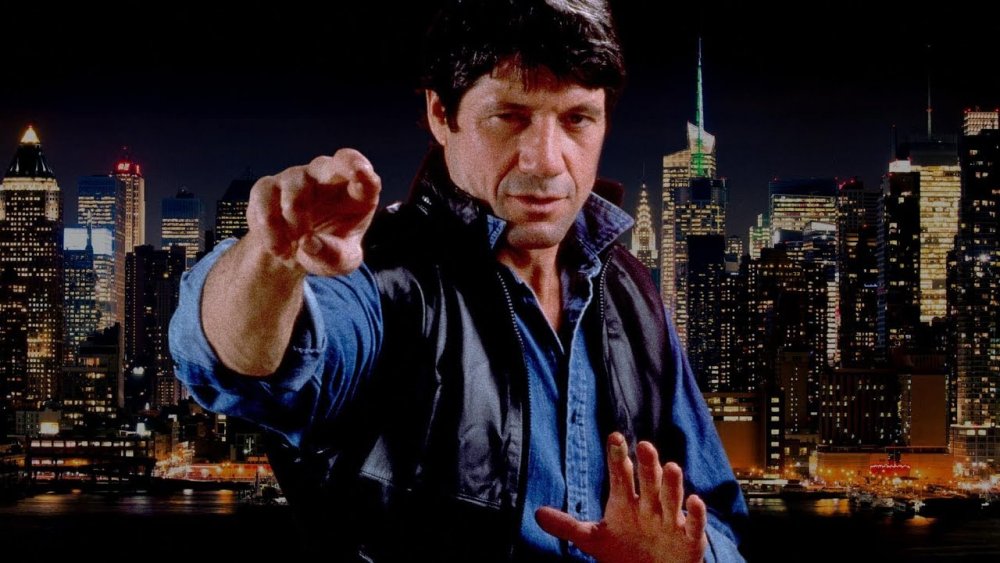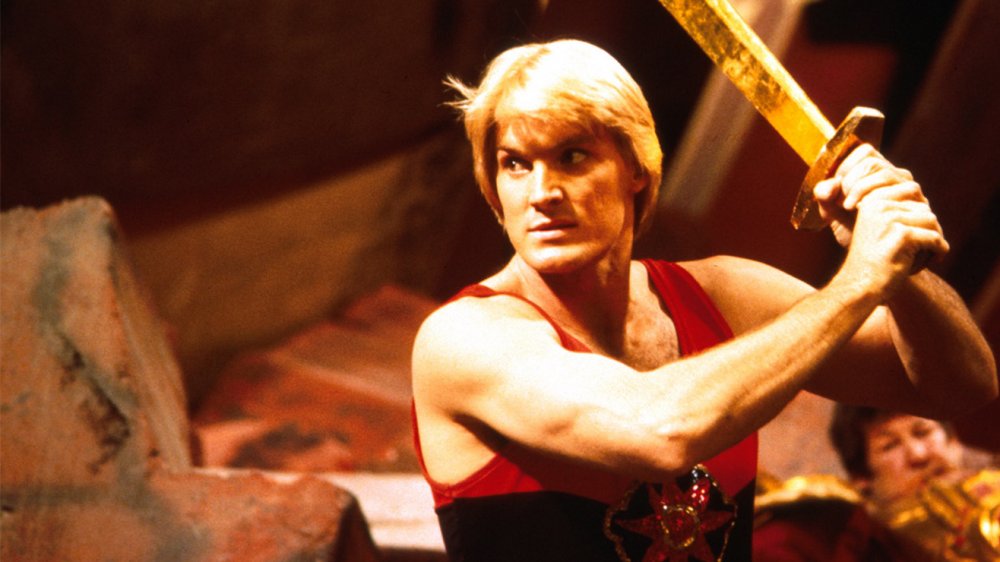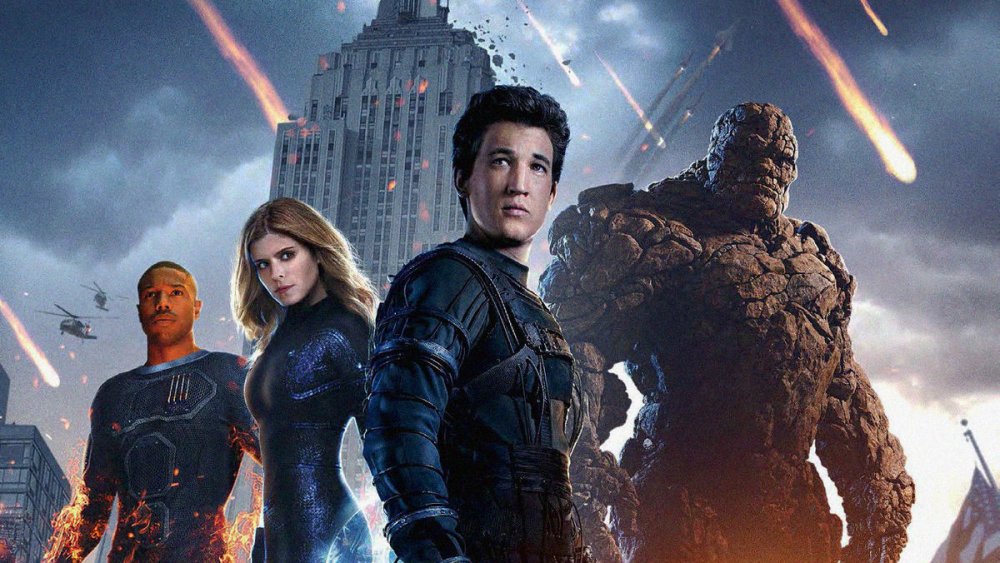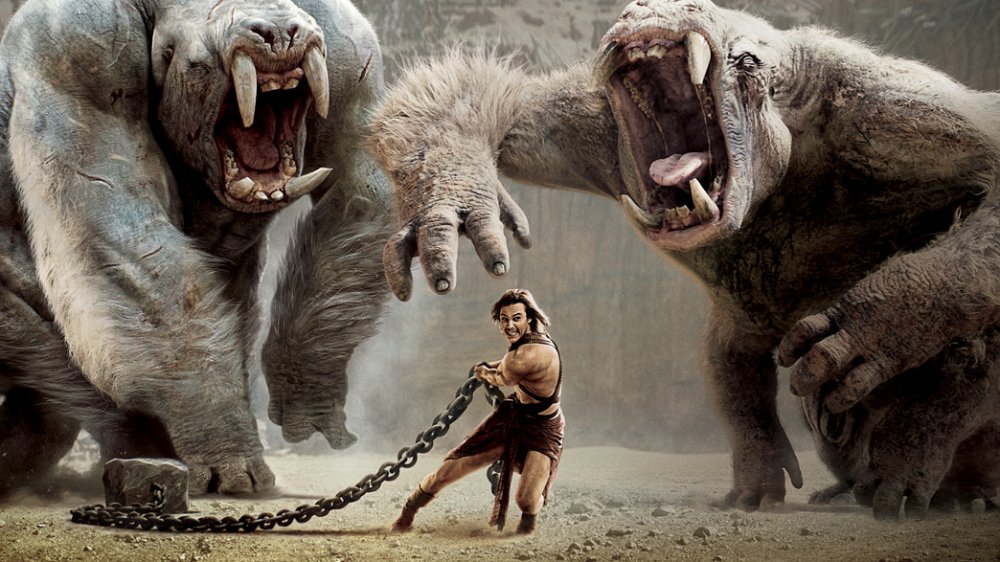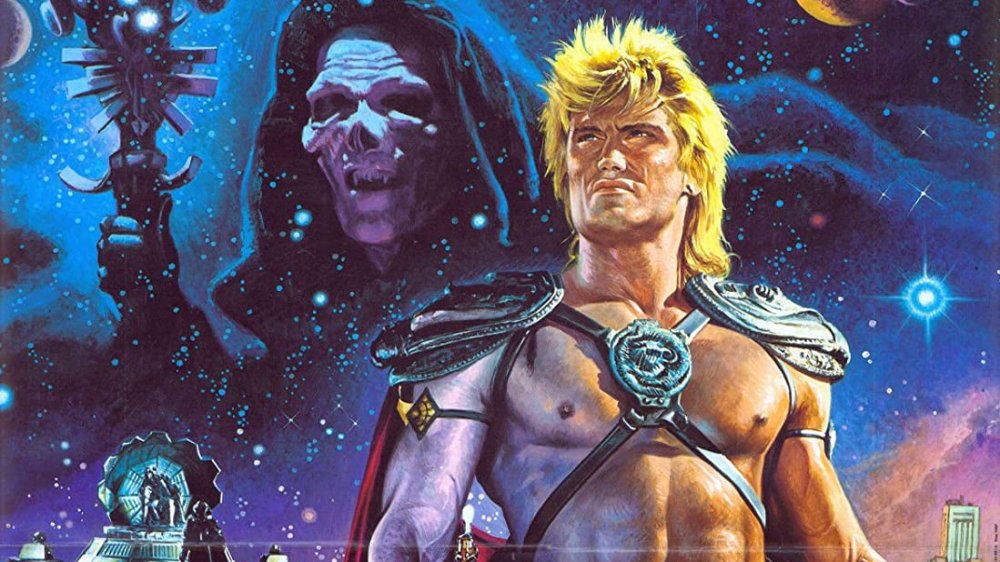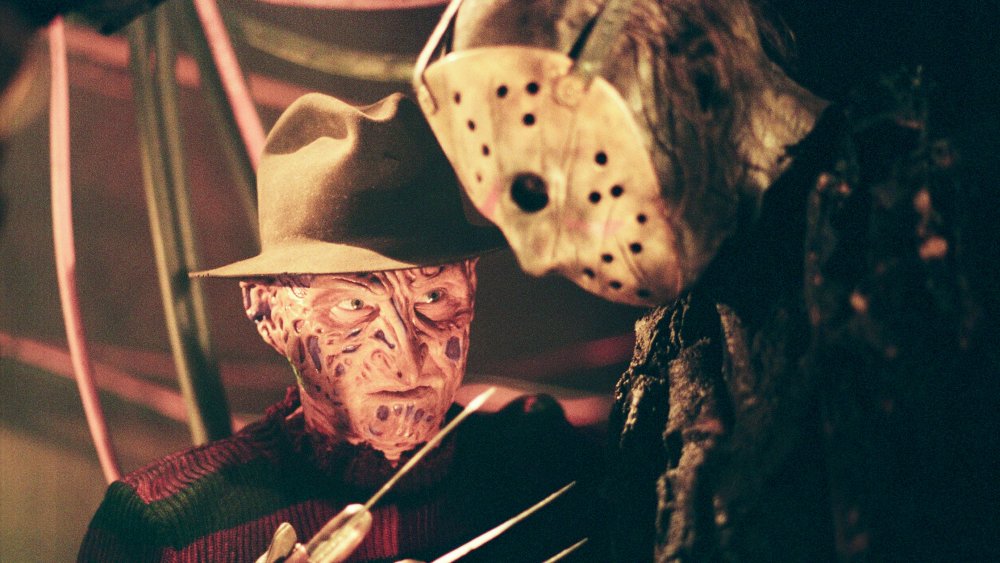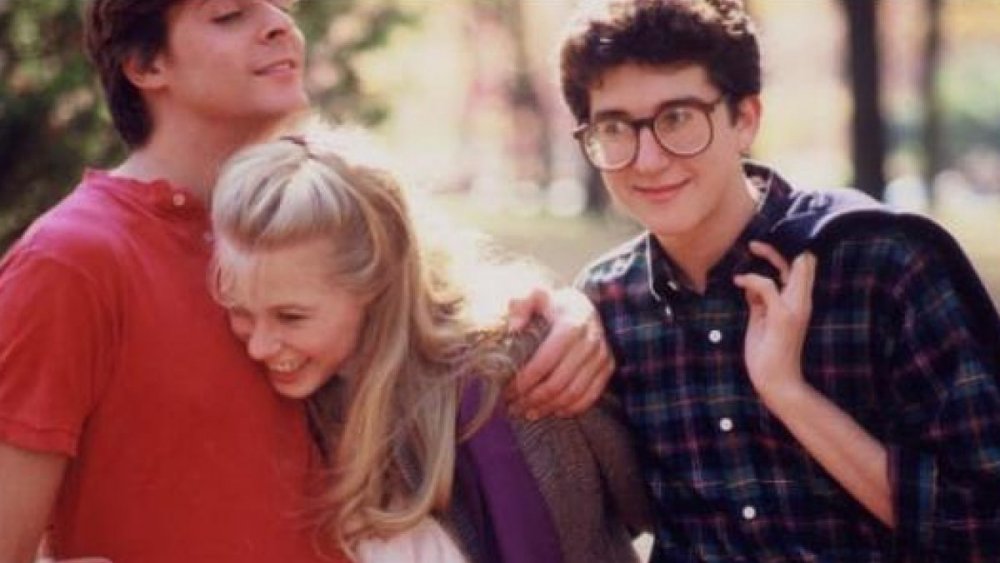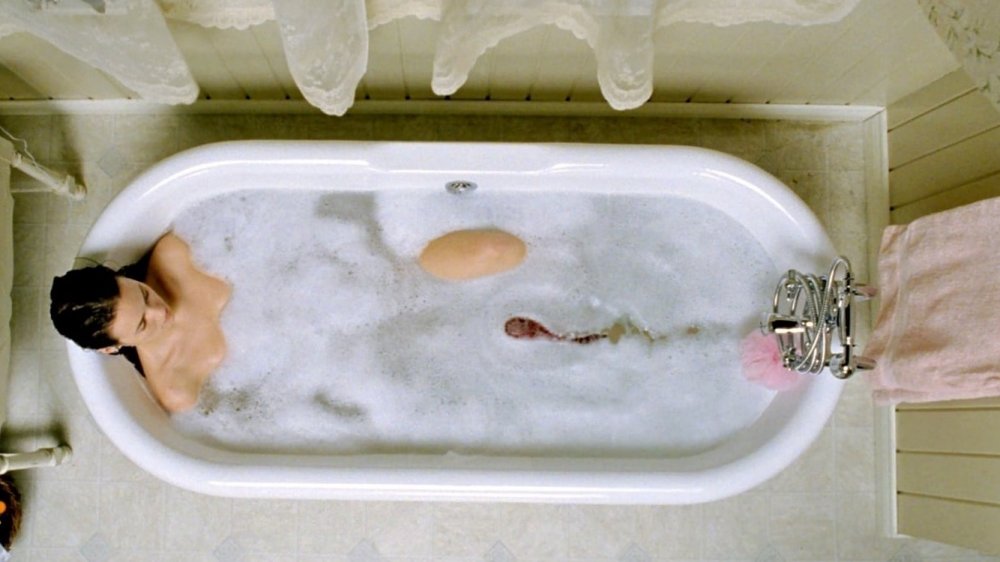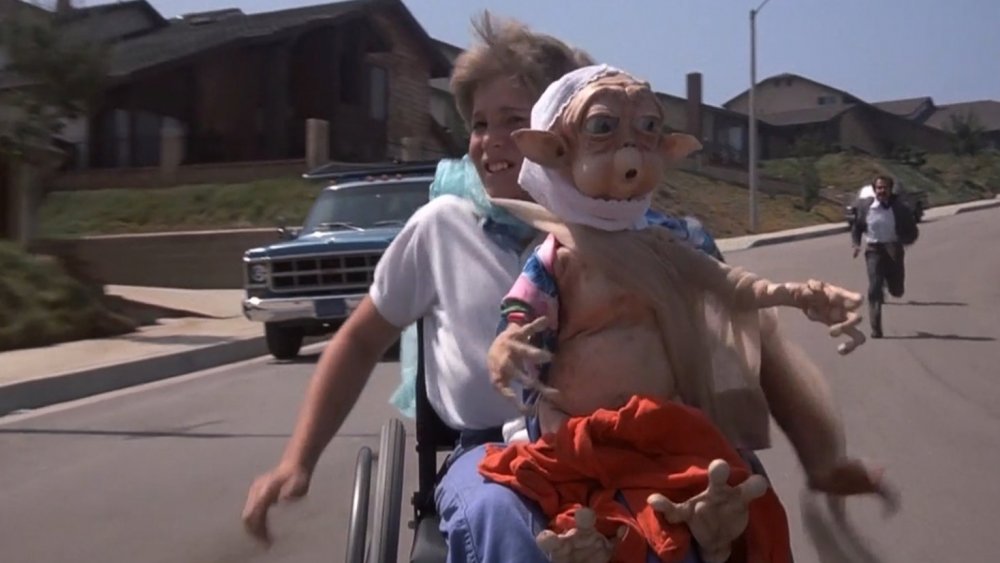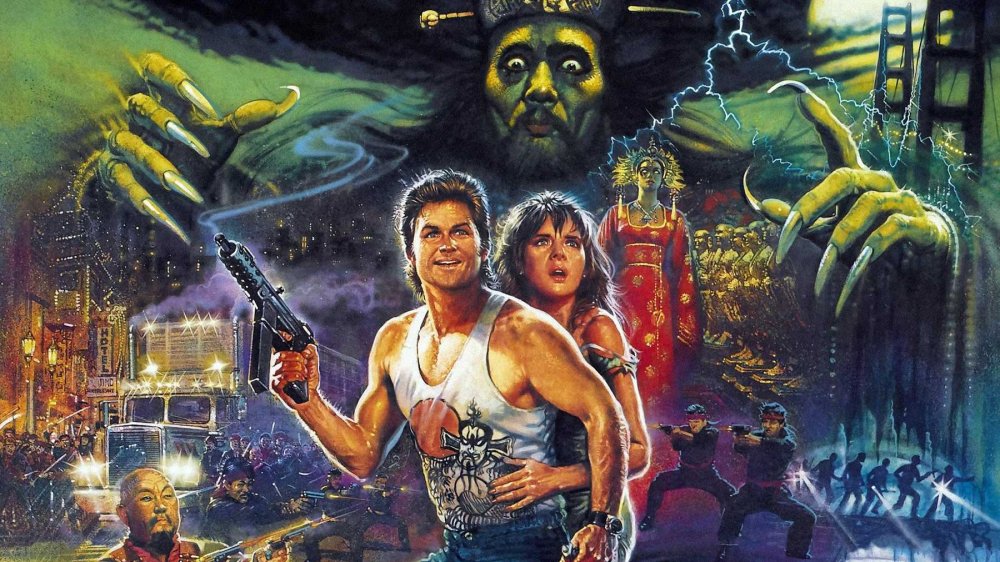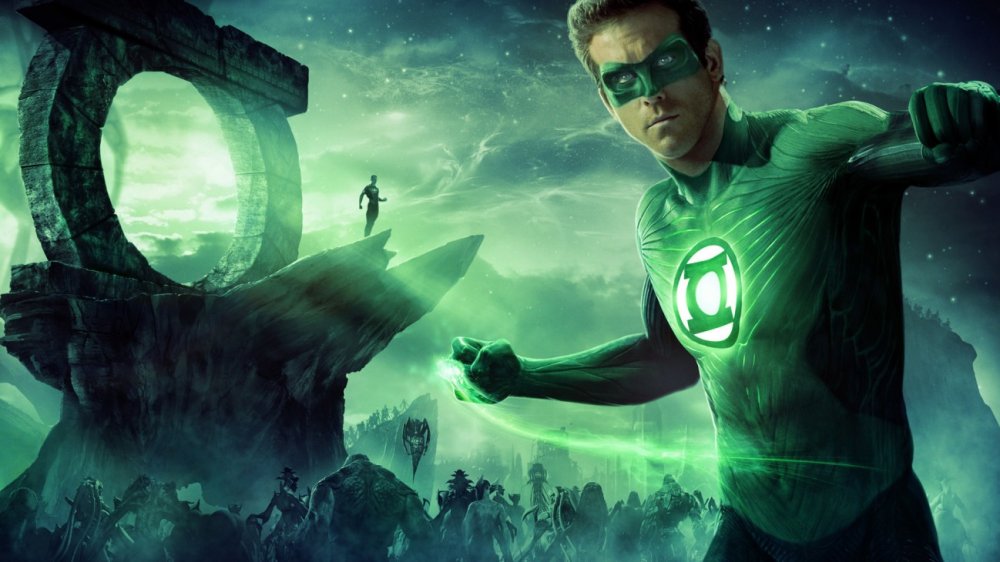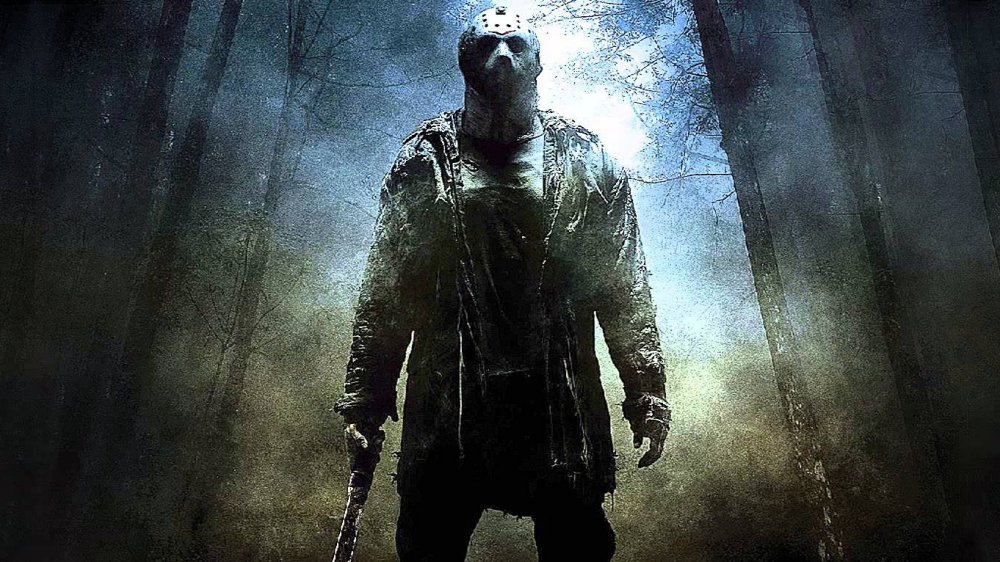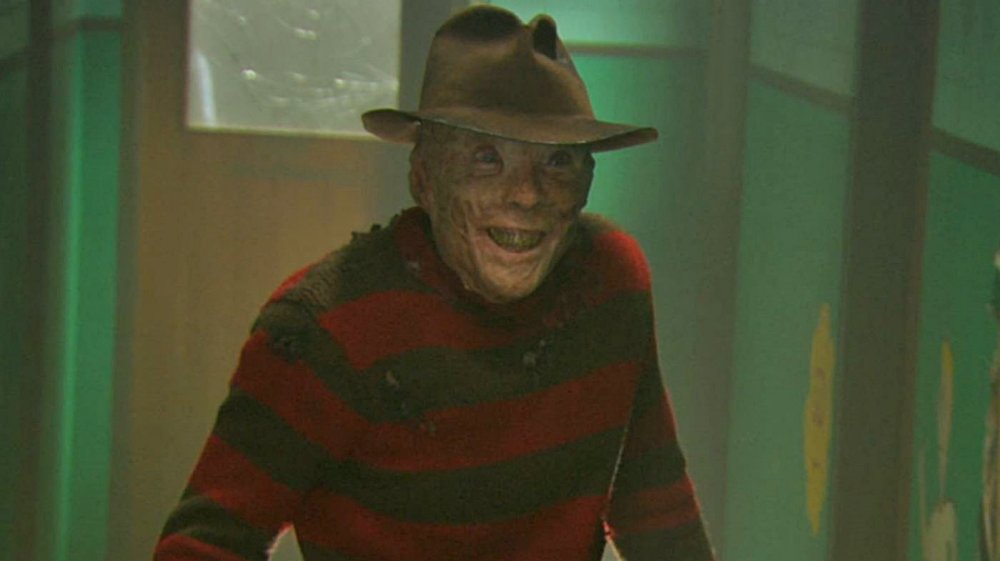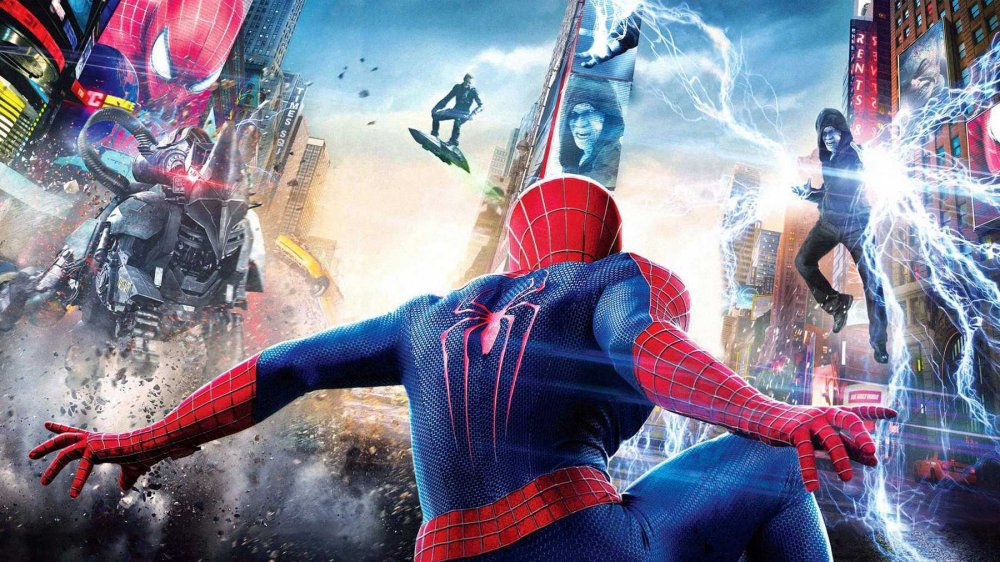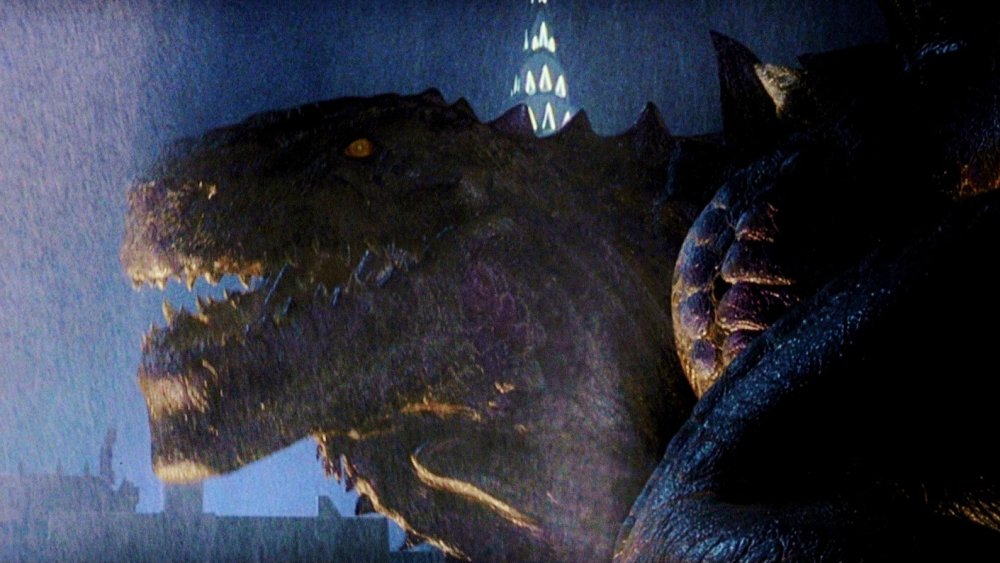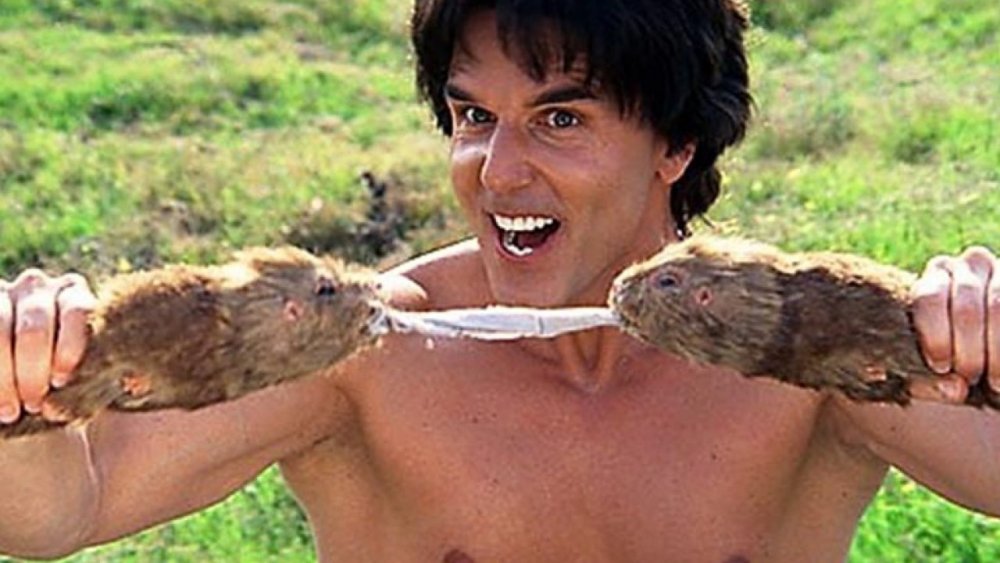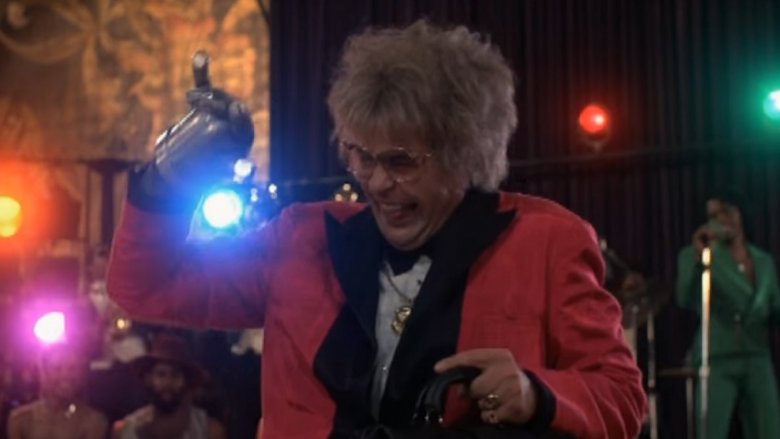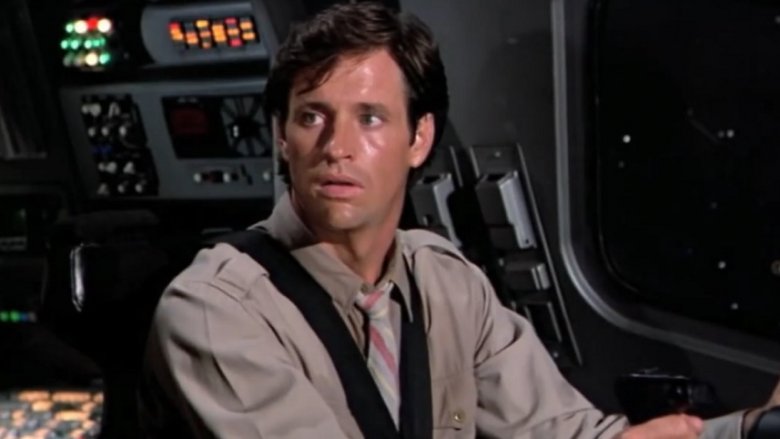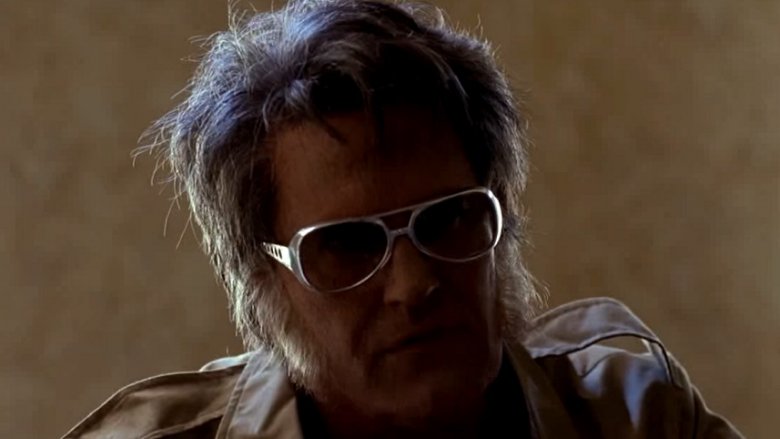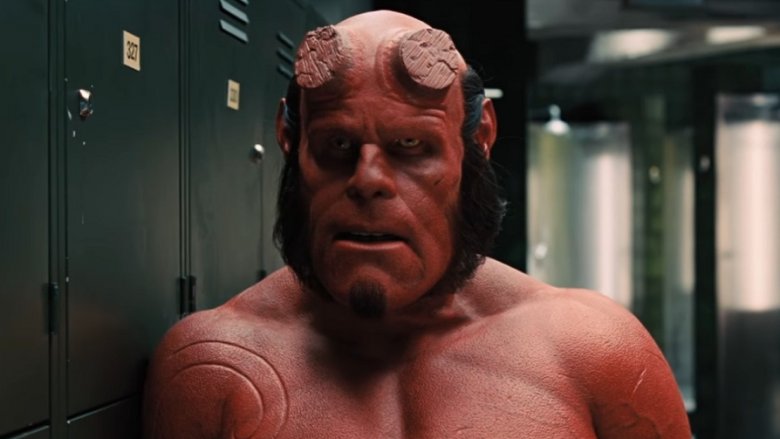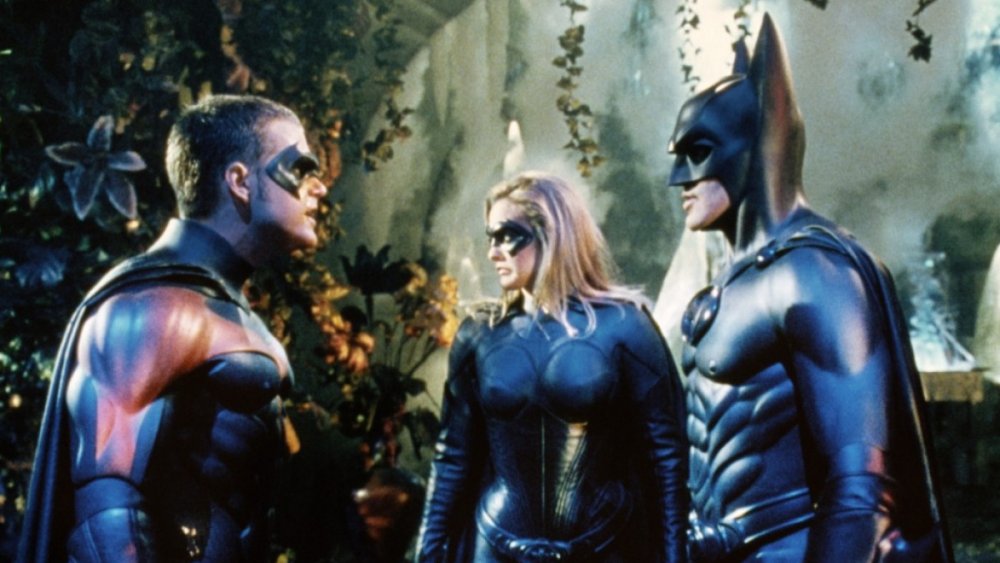Movies That Teased Sequels That Never Happened
In today's world of mega-franchises and shared cinematic universes, it's easy to forget what a big deal a sequel to a popular film used to be. In the early days of the blockbuster, a sequel seemed like a special gift from the filmmakers to the audience, an acknowledgement that they knew we liked their movie, and they thought that was cool, and wanted to give us more.
As sequels started to seem more like a given than a gift, some movies began setting them up right there in the first film, promising even greater adventures with the characters we'd just come to know. But sometimes, for a variety of reasons, this didn't always work out—and audiences were left hanging, awaiting a next chapter that was never to be.
Warning: spoilers abound.
Remo Williams: The Adventure Begins (1985)
When Orion Pictures debuted its newest action hero in 1985's Remo Williams: The Adventure Begins, their intention was right there in the title. Based on a series of novels, the film was to be a franchise starter for a new type of action hero, one that could contrast with the then-current cinematic glut of Stallones and Schwarzeneggers. Remo was a combat veteran chosen for a government program with the aim of creating a new breed of secret agent—an unarmed, ghostlike operative who could casually dodge gunfire and sprint across water.
Orion nakedly aimed to imitate United Artists' success with the James Bond franchise, and even brought the director of Goldfinger and Live and Let Die and the writer of Moonraker on board for their first installment. Journeyman actor Fred Ward, who committed wholeheartedly to the physical role, was signed for three pictures, and the film's optimistic subtitle promised audiences many adventures to come... but none ever did.
The movie was quite good and got solid reviews, but audiences couldn't have cared less. Remo's bad luck didn't end there, however. In 1988, an attempt was made to port the character over to television with the TV movie Remo Williams: The Prophecy, which might have served as a pilot for a new series. It aired only once, and all but the last fifteen minutes were pre-empted by a presidential address. The film was finally broadcast in its entirety in 2009 by Encore Action.
Flash Gordon (1980)
1980's Flash Gordon was a gloriously, sublimely cheesy take on the space opera featuring Max Von Sydow as Ming the Merciless and with a soundtrack by Queen in their prime. At the risk of hyperbole, it may be the single greatest thing ever. The film ends with Ming's apparent death when Flash literally crashes his wedding by piloting a huge spaceship right up into it and impaling Ming with the spire conveniently located on the ship's nose. Again, greatest thing ever. But as everybody celebrates the end of Ming's tyranny, the camera shows us his ring... which is picked up by a gloved hand. We hear Ming's evil laughter, and the title card asks, "THE END...?"
Of course, this is a classic ploy letting us know it's not really the end, but in this case, it absolutely was—and unfortunately, the reason appears to have been Flash himself. In a 2012 interview, director Mike Hodges related that after principal shooting was finished, the crew took a break over Christmas before returning to shoot second unit material. Some of these scenes involved a stunt double for star Sam J. Jones, and some of his dialogue had to be dubbed by a soundalike actor—which Jones took serious issue with. His relationship with producer Dino De Laurentiis, not fantastic to begin with, quickly soured at that point, and Jones subsequently balked at returning for the planned sequel.
Fantastic Four (2015)
Fox Studios' 2015 reboot of Fantastic Four had a famously troubled production, and it's been suggested by both cast and crew that studio meddling kept director Josh Trank from making the film he wanted to make, which allegedly would have been much better than the undercooked mess we got. While the film floated an interesting body horror take on the team's abilities and featured a stellar cast including Miles Teller, Kate Mara, and Michael B. Jordan, none of its moving parts seemed to want to fit together, and it was a resounding box office and critical failure.
Despite all of this, Fox insisted in the aftermath of the film's release that they were going ahead with a sequel, even setting a 2017 release date. The film's ending certainly seemed to set one up, with the team being handed a new base of operations by the government and officially adopting their collective moniker.
But despite the fact that Fox only has so long to do something with the characters before the rights revert back to Marvel, they quietly removed the sequel from their schedule in late 2015. For now, the screen fate of Marvel's first family appears to be in limbo; producer Simon Kinberg commented in early 2017 that Fox would "not make another Fantastic Four movie until it was ready to be made," which could mean anything.
John Carter (2012)
Attempts to adapt Edgar Rice Burroughs' classic Barsoom pulp novel series have been many and varied, and they usually begin and end in Development Hell. In 2009, rights holder Disney pinned their hopes to writer and director Andrew Stanton, the man at the helm of the recent Pixar successes Wall-E and Finding Nemo, and who had a grand vision for films based on the first three books of the series—A Princess of Mars, The Gods of Mars, and The Warlord of Mars. The Internet was abuzz, interest was piqued—and then the film, which was rumored to cost as much as $300 million to produce, premiered in 2012 to such absolutely deafening silence that studio execs were left scrambling to figure out what went wrong.
It wasn't just one thing. Everything about the film broadcast blandness, from its name (shortened from the original John Carter of Mars) to its marketing (confusing, aimless trailers with nary a hint of the film's story) to its star (Taylor Kitsch).
Audiences who had no idea who John Carter was or why they should care stayed away in droves, and Disney took an $84 million loss that quarter. Despite the film's sequel-teasing ending and Stanton's plans—which he recently shared some of with the movie's fans—Disney scrapped the entire idea, even going so far as to allow the film rights to revert back to Burroughs' estate.
Masters of the Universe (1987)
In 1984, the idea of a live-action adaptation of Masters of the Universe, based on an insanely popular toy line from Mattel and its companion animated series, was the answer to every young boy's dream. Unfortunately, the movie wasn't released until 1987. Starring Dolph Freaking Lundgren as He-Man, it had the studio hoping for sequels, dreams confirmed with a very early example of the post-credits teaser. Frank Langella's Skeletor emerges from the pit of goo into which he's thrown in the climactic battle, and tells the audience in no uncertain terms that he'll be back—but it was not to be, as his movie had the misfortune of being made by Cannon Films.
Cannon was an infamous production company that found some success in the '80s with cheap Chuck Norris action flicks and lots of movies with Ninja in the title. Today most famously responsible for destroying the Superman film franchise, Cannon was simply stretched so thin by the mid-'80s that Masters of the Universe just barely got completed.
The production was constantly in danger of going broke, cuts were made wherever they possibly could be, and the final fight between He-Man and Skeletor takes place in the dark for a reason—producers were literally shutting down the production while cameras were rolling. Despite this, production actually began on a sequel, but it was scrapped and its sets and costumes used for the Jean-Claude Van Damme flick Cyborg.
Freddy vs. Jason (2003)
Despite all of its numerous flaws, the 2003 crossover movie Freddy vs. Jason pretty much gave fans exactly what they came to see. The sight of the two towering titans of the slasher genre beating the holy hell out of each other helped to make up for any shortcomings, and the film's ending left no doubt that Freddy—even though he lost—wasn't done with Mr. Voorhees by a long shot. A comic book crossover featuring Ash from The Evil Dead has kept fans interested, but unfortunately, any of those fans still waiting for a cinematic Round 2 are going to be waiting a long, long time.
There are about a thousand reasons for this, first and foremost the flagrantly unsuccessful reboots that both properties have endured in the years since. There's also the fact that New Line actually had to buy the rights to Friday the 13th in order to get the crossover made, and Paramount long ago reacquired those rights. But Ash himself, Bruce Campbell, seemed to put any sequel talk down once and for all when he revealed that he'd floated the idea of adapting the comic storyline to New Line, and that the conversation had lasted about five seconds.
Making the Grade (1984)
If you remember the 1984 Judd Nelson comedy Making the Grade, you may have a better memory than most. It might be the most low-profile film ever to promise its audience a sequel, its most notable detail—for better or worse—being that it's the second film appearance of comic Andrew Clay, whose character is a loan shark named "Dice," which answers that question.
Being the story of a spoiled rich kid named Palmer who shirks his academic responsibilities with the help of a con artist named Eddie, Making the Grade barely registered the tiniest blip with the filmgoing public—but the Cannon film wasn't short on confidence, promising audiences as its end credits rolled that "Palmer and Eddie will be back in Tourista, Coming Soon!" After their first adventure was met with a solid shrug, the planned sequel was never put into production.
Slither (2006)
Before he was in the business of making the most idiosyncratic of all Marvel's films, James Gunn was in the business of making really weird films with a distinctive style. With 2006's Slither (not to mention his first take on the superhero genre, Super) he showcased an ability to find a consistent tone with material that is alternately funny, horrifying, and heartfelt that few filmmakers can match. Slither is the rare horror-comedy that actually works, and the alien slug invasion flick had a post-credits sequence that strongly suggested that the threat was not contained.
It wasn't just an afterthought, either: Gunn has stated plainly that there were indeed plans for a sequel, but the film just didn't make enough money. Horror fans eventually caught up with Slither on home video, and it has since become a cult classic. Ironically, fans that pine for the sequel that never was may very well have gotten one if they'd actually seen the film in theaters. In its entire theatrical run, it made a paltry $7.8 million—barely half its modest $15 million budget.
Mac and Me (1988)
Although it came and went with practically nobody noticing in 1988, Mac and Me has become infamous since the advent of YouTube. It has been called both the most brazen E.T. ripoff ever and a 90-minute commercial for McDonald's and Coke, and neither statement is incorrect. Scenes like the show-stopping McDonald's dance party and the one above, which frequently shows up in compilations of the very worst film scenes of all time and has become a running gag between Paul Rudd and Conan O'Brien, elevate the film from simple cash-in to some kind of surreal capitalist anti-masterpiece.
The film ends with a "We'll Be Back" freeze-frame that was a given, as producers (and McDonald's and Coke) were obviously expecting the money to come rolling in. But it did not, as the film grossed only a measly $6.4 million, even less than your average Cannon production. It goes to show, however, that a little good can come of even the most cynical cash grabs—one of the dancers in the McDonald's scene is an uncredited teenage Jennifer Aniston, in her film debut.
Big Trouble in Little China (1986)
Big Trouble in Little China is many things: one of several fruitful collaborations between John Carpenter and Kurt Russell, the only Hollywood movie to examine the many Hells of the Chinese, and one of the most gonzo insane things ever put to film. The story of Jack Burton, a trucker who gets caught up in a struggle between Chinese street gangs and ancient sorcerers, Big Trouble confounded audiences and critics when it was released in 1986. In the DVD commentary Russell said, "In a sense, what people are talking about nowadays is that we were ahead of our time, it seems like in any one of the movies we [he and Carpenter] worked on together. People get it later."
This certainly appears to be true, as Big Trouble—along with Escape From New York and The Thing—have earned reputations that far exceed their initial lukewarm critical assessments. Big Trouble's final scene, in which Jack unknowingly hitches a ride from an interdimensional monster, sets up a sequel that never was—but thanks to the film's beloved cult status, Jack Burton will be returning to theaters after all. It was announced in 2015 that Dwayne Johnson will produce and star in a remake, which the Rock confirmed in 2016 is still on the way.
Green Lantern (2011)
2011's Green Lantern was an ambitious, expensive, and ultimately failed attempt by Warner Brothers to make something happen with a DC property that isn't Batman or Superman. Had the film succeeded, it's quite possible that it and not Man of Steel would have been the movie to launch DC's Extended Universe, which would probably look absolutely nothing like it does now as a result.
But despite the casting of the ever-likable Ryan Reynolds in the title role and a $200 million budget, the film was a complete mess, the result of being plagued with bad decisions and studio interference from the beginning. Critics picked it apart, pointing to everything from muddy CGI to an exposition-heavy yet confusing story, to a lack of a consistent tone, and audiences generally agreed that this was not the Green Lantern they wanted (and that Parallax should not have been a freaking cloud).
The film's post-credits sequence shows Sinestro, a member of the Green Lantern Corps throughout the film, donning his yellow ring and embracing what all fans know to be his destiny, all but directly telling the audience that he'll be their villain for the sequel. Green Lantern's critical and box office performance forced Warner Brothers to rethink their strategy, and a rebooted Green Lantern film—based on the Green Lantern Corps comic series and featuring fan favorite character John Stewart—won't be arriving until 2020, by which point Warner Brothers is hoping that fans will have forgotten about this one.
Friday the 13th (2009)
The 2009 reboot of seminal slasher classic Friday the 13th saw Jason Voorhees and his famous hockey mask return to the screen after a six-year absence. After the success of the 2003 crossover hit Freddy vs. Jason, both series just kind of petered out, and Michael Bay's Platinum Dunes production company stepped in to attempt to fill the void with an updated story featuring a leaner, meaner, more intelligent Jason (Derek Mears) who's constructed a series of tunnels under Camp Crystal Lake, explaining his ability to seemingly be everywhere at once. Unfortunately, this was in no way the Jason that many fans wanted.
The film utterly polarized series diehards, and the critics were absolutely merciless, dismissing the film as rote, boring and unimaginative. The optimistic filmmakers made sure to include a final scene showing Jason bursting forth from underneath Crystal Lake's pier, grabbing our hapless protagonist before a smash cut to black — but after the film's release, producers went right back to being utterly confounded as to what to do with the franchise. It doesn't look like this will change anytime soon; in lieu of a sequel to the 2009 edition, it was announced in 2013 that the series was to be rebooted yet again — but that project was canceled in 2017, and longtime series distributor Paramount may be done with the franchise completely.
A Nightmare on Elm Street (2010)
The 2010 Platinum Dunes reboot of A Nightmare on Elm Street seemed, on paper, like it might fare slightly better than the studio's last attempt to cash in on an '80s horror franchise. Freshman director Samuel Bayer was champing at the bit to helm his first feature after a career in music videos, and primary screenwriter Wesley Strick was the scribe behind cult classic Arachnophobia and Martin Scorsese's Cape Fear. The talented Rooney Mara was cast in the lead, and Jackie Earle Haley — a veteran character actor who had had a career resurgence in 2008 as the best part of Zack Snyder's Watchmen — was the new Freddy Krueger. The stars were all aligned, but the execution just wasn't there, and the film irked critics and fans even more than the Friday reboot.
Of course, the film closes with a modified version of the original's famous ending, as Freddy pops out of a mirror to stab Nancy's mom in the head and drag her screaming into his dream world. But its incredibly chilly reception (even original Freddy Robert Englund wasn't a big fan of the movie) meant that no direct sequel would be forthcoming. Studio New Line has threatened several times in recent years to jump back on the reboot horse with another new Nightmare, but this has so far failed to materialize.
The Amazing Spider-Man 2 (2014)
Sam Raimi's original Spider-Man film series was beloved by most fans of the wall-crawler (Spider-Man 3 notwithstanding), so they were understandably skeptical when Sony pulled the plug on a planned fourth entry in the series in favor of hitting the reboot button. But 2012's The Amazing Spider-Man, with Andrew Garfield replacing Tobey Maguire in the lead role, largely got passing grades from critics and moviegoers, and did well enough at the box office to merit a sequel. 2014's The Amazing Spider-Man 2 provided somewhat diminishing returns while also suffering from the dreaded villain bloat, but producers felt confident enough to include a post-credits sequence teasing the coming of the Sinister Six, a deadly band of Spidey's greatest foes including the Vulture, Doctor Octopus and Green Goblin. There was no reason to think a third installment wouldn't happen, and it surely would have — if Marvel Studios hadn't made Sony an offer they couldn't refuse.
The two studios agreed in 2015 to share joint custody of the character, freeing him up to appear alongside his fellow heroes in Marvel-produced films while Sony would continue handling production duties on Spidey's solo outings (which would also take place in the MCU). The part was recast with Tom Holland, who has pretty much made fans forget all about Peter Parker's previous film incarnations with his spot-on portrayal, and the Amazing series was unceremoniously cut short. Sony continues with their own proprietary Spider-Verse apart from the MCU, but since it contains no Spider-Man, fans are once again skeptical.
Godzilla (1998)
Following the unprecedented success of the MCU, practically every film studio was eager to cash in with cinematic universes of their own — but virtually none have had much luck, with the possible exception of Legendary's MonsterVerse. 2014's Godzilla and 2017's Kong: Skull Island were both well-received, with the shared universe elements revealed slowly and patiently, and 2019's Godzilla: King of the Monsters looks to continue the trend with an all-out Kaiju brawl. But this success was a long time coming; in 1998, director Roland Emmerich helped sink the big green lizard's big-screen fortunes for the better part of two decades with his Godzilla, a mess of a film featuring a weird-looking monster and starring noted man of action Matthew Broderick.
Apparently convinced that his ill-conceived version of the iconic beast was something audiences were going to want to see more of, Emmerich and co-writer Dean Devlin included a final teaser scene. At the film's climax, Godzilla (who in this version is female) lays eggs, and our heroes must destroy all the hatchlings. But the teaser reveals that they missed one, and we see a lone, screeching baby 'zilla burst from its shell before we cut to black and the credits roll. However, not only did the film's poor reception kill any chance of a sequel, it left the filmmakers totally flummoxed as to how to handle the property, and left the door open for Legendary to acquire the rights in 2010 — which so far seems to be working out well.
Kung Pow: Enter the Fist (2002)
2002's Kung Pow: Enter the Fist is one of the weirdest films ever made, and its singularly bizarre gimmick tends to either inspire extreme annoyance or gales of belly laughter. Comedian Steve Oedekirk began with a print of the 1976 kung-fu flick Tiger and Crane Fist, using it is a framework upon which to hang an endless series of hilarious gags; he digitally inserted himself into the lead role, added new footage to expand the plot and comic effect, and gave the world its first (and thus far, only) kung-fu fight with a CGI cow. It's crass, juvenile and awesome, and fans have been waiting ever since for the sequel teased in its final scene.
The bit plays like a trailer, with a title card announcing "In the Next Episode..." It teases the ongoing conflict with the aliens which were revealed to be the first film's villains, the return of Whoa the Three-Boobed Chick, and the brawl that's sure to ensue when Moo Nieu the cow returns for revenge with all of her barnyard friends. Oedekirk insisted as late as 2015 that the sequel was still happening, but there hasn't been a whiff of news since, making the return of the Chosen One increasingly unlikely.
Doctor Detroit (1983)
1983's Doctor Detroit is a pure distillation of the early '80s. The goofball comedy starred Dan Aykroyd as a straight-laced professor who assumes the fictitious titular persona and takes over a gaggle of prostitutes after their original pimp, Smooth (Howard Hesseman, of all people) skips town to dodge an $80,000 debt to a crime boss known as "Mom." James Brown features in the proceedings, there's a theme song by Devo, and an astonishing array of big hair and tacky clothes are on display. Aykroyd was a box office can't-miss during this time — but there's an exception to every rule, and Doctor Detroit proved it.
Its final scene promised more adventures for the Doctor, teasing the sequel Doctor Detroit 2: The Wrath of Mom (Star Trek II: The Wrath of Khan had been released less than a year prior). But the film unexpectedly tanked, struggling to notch a paltry $10 million box office haul. In a 2013 interview with Esquire, Aykroyd revealed that the tease hadn't been just a gag — he had actually begun writing a script with the expectation that the sequel would go into production. But Doctor Detroit's poor showing sank that possibility, even though Aykroyd surprisingly asserted that the film was the most important of his career: "It's the one where I met my wife. It led to three kids and 30 years of marriage, so it's a pretty important movie for me. But I don't see Universal stepping up to [the sequel]."
Airplane II: The Sequel (1982)
There are few comedy classics more beloved than 1980's Airplane!, the purest example of the insanely goofy comic sensibilities of the writing team of David and Jerry Zucker and Jim Abrahams, who were also responsible for the Naked Gun series, among many others. It's an absolutely relentless wall of gags, laid on so thick that it's impossible to catch them all even after repeat viewings, and 1982's appropriately titled Airplane II: The Sequel exceeded expectations. There seemed to be no reason why Captain Ted Striker (Robert Hays) and crew wouldn't return for a third go-round, and a post-credits title card promised that Airplane III was on the way — but the blame for this empty promise can pretty much be pinned on Hays himself.
Years later, Hays revealed that he had simply gotten sick of people pestering him about the forthcoming picture, causing him to back out. "You have to understand the atmosphere, 31 years ago. Sequels were frowned upon," he said. "They were negotiating for doing Airplane 3, and it had really gotten to me. I was being ragged on by the press a lot... When finally I said, 'I'm not going to do it,' that was it, they didn't do it. Of course, I wish we had... but you know, that was then and this is now."
Bubba Ho-Tep (2002)
Writer/director Don Coscarelli is best known for the five films in his long-running Phantasm series, and more recently for his adaptation of the surrealistic David Wong novel John Dies at the End. But in 2002, he gave us one of the single weirdest cult classics ever put to film — Bubba Ho-Tep, the story of an elderly Elvis Presley (Bruce Campbell) who is forced to take action when his nursing home is terrorized by an ancient mummy. The film's ending seemed to set up the possibility of myriad future adventures for the King to square off against the forces of evil, even teasing the title Bubba Nosferatu: Curse of the She-Vampires for the next installment. The film even got an IMDb page — but as Bubba fans know, there's no way it will ever happen.
It's another unfortunate case of the film's star shooting the sequel down, as Campbell made clear in an Entertainment Weekly interview. "I killed it," he said. "I killed it for me. I told the creators that I didn't want to dance around it anymore. I feel that the first one was a nice little gem and you don't have to make a sequel for everything... So, that one I'm just going to let go." Of course, Coscarelli could always make the film with another star — but he hasn't gone near a director's chair since 2012, and he's likely well aware that as far as fans are concerned, without Campbell, there is no Bubba.
Hellboy 2: The Golden Army (2008)
The 2004 film Hellboy, an adaptation of the cult Dark Horse comics character of the same name, could have gone several ways. The half-human, half-demon superhero has always been a bit of an idiosyncratic property, and it might have translated very poorly to film — if not for the extreme commitment of director Guillermo del Toro and star Ron Perlman, in the role he was born to play. The film was a moderate hit and spawned the 2008 sequel Hellboy II: The Golden Army, which did similar box office while generally being seen as an improvement over the original. The film teased further adventures with the revelation that love interest Liz (Selma Blair) was pregnant with twins, and del Toro spent the better part of the next decade struggling mightily to bring the project to life — to no avail.
The director confirmed via Twitter in 2017 that he had spoken with "all parties" and was sorry to report that "100% the sequel will not happen." After an outpouring of disappointment on the social media platform, del Toro clarified that the door was open for other filmmakers to move forward with the property — and indeed, it turned out that studio Universal essentially nixed the idea of a threequel because they were more interested in going the reboot route. In 2018, imprint Lionsgate announced that a darker, more horror-flavored Hellboy would be released in 2019, with David Harbour (Stranger Things) in the title role.
Batman & Robin (1997)
There are maligned superhero films, and then there's Joel Schumacher's 1997 debacle Batman & Robin. The fourth installment in the original Batman film series took previous film Batman Forever's campy, candy-colored tone to an extreme with ridiculous production and costume design (two words: bat nipples), a garish Gotham City seemingly exempt from the laws of physics, and Arnold Schwarzenegger as a Mr. Freeze who absolutely can't stop spouting lame ice-related puns. It famously brought the franchise to a screeching halt, setting the stage for godfather-of-all-reboots Batman Begins eight years later — but judging by Batman & Robin's ending, all involved were positive that a fifth entry was a no-brainer.
In fact, the film impressed studio executives so much with its dailies that Schumacher was hired to direct another go-round before it was even completed. The ending set up Batgirl's continued involvement and teased a potential revenge arc for Mr. Freeze; George Clooney would have returned as the Caped Crusader, the Scarecrow would have been the main villain, and the project even had a working title of Batman Triumphant. But then the court of public opinion convicted Batman and Robin of being one of the worst superhero films ever made, and the rest is history. Of course, if not for the movie's failure, our current landscape of superhero blockbusters might look very different — but Schumacher has always felt awful about it. In 2017, he even took the rare step of publicly apologizing for the film.
